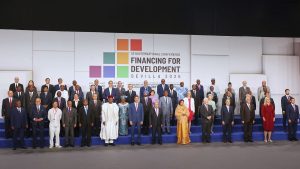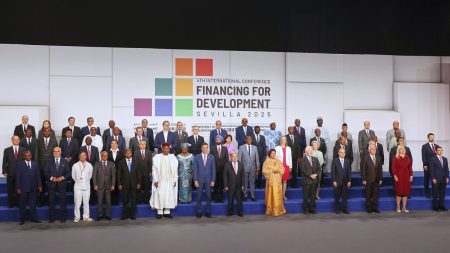A recent survey conducted by the Bertelsmann Stiftung Foundation highlights a significant shift in the attitudes of EU citizens towards the United States, revealing a growing skepticism of American influence. In a study involving over 26,000 participants from all 27 EU member states, the findings indicate that nearly half (49%) of respondents no longer consider Washington their most critical ally, with alternatives like the UK (13%) and China (10%) gaining favor. Belgium emerged as the most US-skeptical nation, where only 43% view the US as their primary military partner, while Poland exhibits a more favorable stance, with 65% still believing in the importance of their US partnership. Notably, Italy reports a significant inclination towards China, with 13% of respondents expressing supportive views.
The survey further identifies the demographic and political profiles of those who are increasingly skeptical of the US. A predominant characteristic of US-skeptical individuals are their age, primarily between 18 and 35, along with being less educated and leaning left politically. Many also reside in rural areas. Conversely, individuals who maintain a more favorable view of the US tend to be older, specifically over 55, possess higher education levels, lean center-right politically, and are more likely to live in urban settings. This stark contrast underscores the growing divide in attitudes towards US engagement within Europe, particularly among younger generations.
The sentiment for reduced cooperation with the US is also evident in the survey, as a majority (63%) of Europeans, with the exception of Poland, advocate for the EU to diminish its ties and forge an independent foreign policy. This desire is particularly pronounced in foreign policy matters, where an overwhelming 73% urge for a more active EU role. According to Isabell Hoffmann, an expert on Europe at the Bertelsmann Stiftung, these findings suggest that European leaders must take more responsibility for the continent’s security, pointing to a significant shift in public sentiment.
Despite this inclination towards an independent foreign policy, NATO remains a crucial component of European security infrastructure, with 64% of respondents citing it as essential for protection against major threats. Nevertheless, opinions about NATO’s effectiveness vary across age groups. Younger Europeans exhibit a clear skepticism regarding NATO’s ability to maintain peace in Europe, with a preference for competitive international relations over cooperative frameworks. This generational divide reflects a broader transformation in how security and international alliances are perceived, especially among younger demographics.
Identifying the perceived threats to security also reveals differing views across Europe, shaped by national contexts. Overall, 25% of Europeans highlight the failure to secure borders as the most significant threat to peace, followed by terrorism (21%), cyberattacks (19%), the risk of foreign aggression (18%), and organized crime (17%). France and Poland appear particularly anxious about uncontrolled borders, echoing a broader European concern regarding migration pressures. On the other hand, Poland emerges as the nation most preoccupied with the possibility of external aggression, reflecting its unique geopolitical positioning.
In conclusion, the survey illustrates a marked evolution in EU citizens’ perspectives towards the United States and international cooperation. With increasing skepticism about American influence, particularly among younger and less educated demographics, there is a clear call for the EU to forge its own path in foreign policy and address security through a more autonomous lens. While NATO continues to serve as a fundamental pillar of security for many, particularly in older age groups, the rising demand for European self-reliance signifies crucial implications for transatlantic relations and the future direction of EU foreign policy. The diverging views on security threats further complicate this landscape, revealing a complex tapestry of concerns that reflect both national interests and broader regional dynamics.














